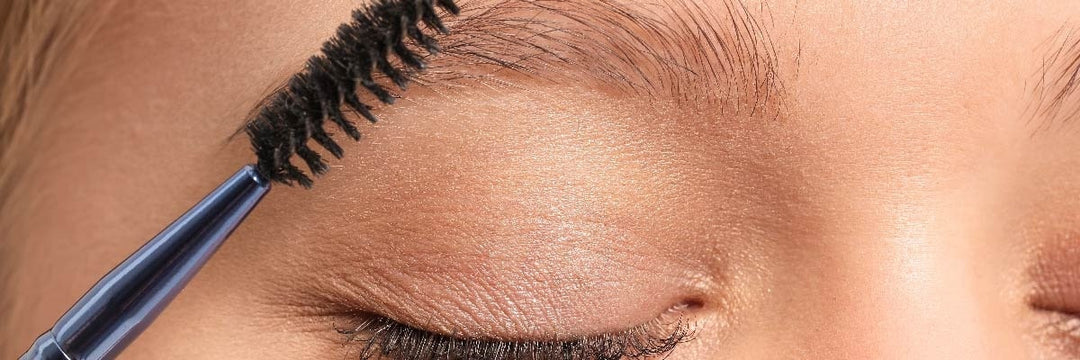What is Atopic Skin? What is Good for It?
Atopic skin is sensitive and prone to dryness. This condition, which occurs due to genetic predisposition, results in hypersensitivity to environmental factors along with a weakened skin barrier. Itching, redness, flaking, and periodic flare-ups are among the most common symptoms of atopic skin. So, what care methods are effective for those living with this skin type? Are natural solutions like aromatherapy truly beneficial? In the following article, you'll find answers to all your frequently asked questions about atopic skin.
What is Atopic Skin? Symptoms and Causes
Atopic skin is a chronic condition that develops primarily as a result of a disruption in the skin barrier. It typically begins in childhood, but the question of what constitutes atopic-prone skin isn't limited to children; it also occurs in adults.
The skin forms a natural barrier against external factors. However, in atopic skin, this barrier is weak and its water retention capacity is low. As a result, it becomes vulnerable to environmental triggers and allergens, leading to itching, dryness, eczema, and irritation.
What's Good for Atopic Skin? Daily Care Routine
A proper skin care routine is crucial for individuals with atopic skin. Keeping the skin moisturized and avoiding irritating ingredients are key to proper care.
Cleanse your skin morning and evening with a gentle, fragrance-free cleanser. Afterward, apply a rich, oil-based moisturizer, not a water-based one. Base oils like shea butter, coconut oil, or jojoba oil create a protective layer on the skin, helping to lock in moisture. Creams, especially applied to damp skin after bathing, protect against dryness in atopic skin.
What Not to Eat for Atopic Dermatitis in Adults?
Diet may have more of an impact on skin health than you might think. The question of what to avoid with atopic dermatitis in adults is especially important during flare-ups.
In some individuals, milk and dairy products, eggs, peanuts, shellfish, gluten-containing foods, or certain additives can trigger atopic symptoms. Individual intolerances vary, so an elimination diet can help identify trigger foods.
It's also beneficial to avoid processed foods, artificial sweeteners, and excessive spices. Eating foods rich in omega-3s can help reduce skin inflammation.
Can Aromatherapy Be Used for Atopic Skin?
Aromatherapy with the right essential oils can have a soothing and supportive effect on atopic skin. However, it's crucial to ensure that essential oils are diluted with a carrier oil before use.
Lavender essential oil can relieve itching thanks to its anti-inflammatory properties. Chamomile oil is known for its soothing effect on sensitive skin. Sandalwood oil can reduce irritation in atopic skin. These oils can be applied topically by mixing them with carrier oils like jojoba or almond oil .
Pure essential oils found in Mana Botanicals products can naturally supplement gentle care routines for atopic skin. However, a patch test should be performed before first use and should not be applied directly to the skin during active flare-ups.
What's Good for Atopic Eczema? Natural Approaches
Atopic eczema is a flare-up of atopic skin. Intense itching, cracking, and even bleeding can occur. In this case, soothing and moisturizing the skin is a priority.
Oatmeal baths are a popular choice when it comes to treating atopic eczema . Natural oatmeal contains skin-soothing ingredients and can reduce the severity of eczema when used regularly in warm baths.
Aloe vera gel also offers rapid relief by reducing skin irritation. Additionally, natural products containing calendula in balm form can support skin regeneration.
Lifestyle Tips for Atopic-Prone Skin
Daily habits, as well as skin care products, have an impact on atopic skin. Here are some basic tips for individuals prone to atopy:
-
Short showers with lukewarm water should be preferred.
-
Soaps and detergent residues that dry the skin should be avoided.
-
Clothing should be made of cotton, synthetic and wool fabrics should not come into direct contact with the skin.
-
Sleep and stress management should not be neglected
-
Humidity balance should be maintained in the home environment and air drying factors should be reduced.
The question of what is atopy-prone skin can be answered not only with a medical explanation, but also with a care process that requires attention at every moment of life.
Expert Opinion and Dermatological Support
Dermatological supervision is crucial for atopic skin treatment. In mild cases, moisturizers and essential oils alone may be sufficient, while severe eczema may require corticosteroid creams or immunomodulators.
Aromatherapy is beneficial when considered as a supplement to these treatments, not as a replacement. Essential oils like lavender or bergamot can support both mental and skin health, especially during stress-related flare-ups.







